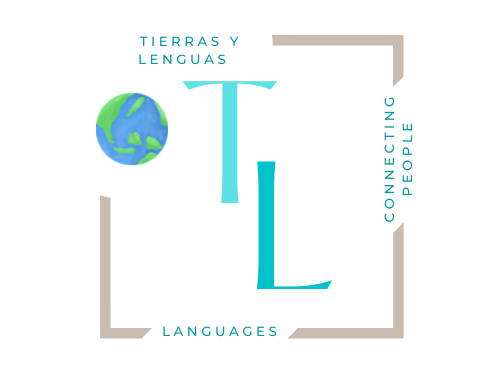Learning a new language is an exciting and rewarding journey, but it’s not always smooth sailing. If you’ve ever felt frustrated with your progress or struggled to make words flow, you’re not alone! At Tierras y Lenguas, we’ve worked with many adult learners like you, and over time, we’ve noticed some common pitfalls. Today, we’ll break down these common language learning mistakes and show you how to sidestep them on your path to fluency.
1. Translating Everything Literally
One of the biggest mistakes learners make is translating every sentence word-for-word from their native language. It might seem like a good approach at first, but every language has its own unique structures, idioms, and expressions. For instance, in Spanish, you’d say “Tengo 30 años” (I have 30 years), but in English , it’s “I am 30 years old.” Translating directly can create confusion and sound unnatural.
How to avoid it:
Focus on learning phrases as they naturally occur in the language. Instead of memorizing single words, focus on how they’re used in real conversations. Language apps like Duolingo provide great examples of natural sentence structures. You can also use tools like Linguee to see words in different contexts or for Spanish the fantastic web ProfedeELE
2. Focusing Too Much on Grammar Early On
Yes, grammar is important, but spending all your time memorizing grammar rules before you even start speaking can slow you down. Many adult learners get stuck trying to perfect every sentence in their heads. Remember, nobody speaks in perfect grammar all the time—not even native speakers!
How to avoid it:
Jump into speaking right away! Don’t wait until your grammar is flawless. At Tierras y Lenguas, we emphasize conversational practice from the start, so you can build confidence and pick up grammar patterns naturally. The key is to focus on communicating your message—perfect grammar can come later. Remember, fluency is about being understood, not perfection!
3. Not Practicing Speaking Enough
One of the biggest hurdles for adult learners is overcoming the fear of speaking in a new language. Whether it’s fear of sounding silly or not feeling “ready,” avoiding speaking practice can slow your progress. But here’s the secret: the more you speak, the faster you’ll improve.
How to avoid it:
Find opportunities to speak! Join a language exchange group in your city or online. Websites like Tandem or ConversationExchange are excellent for finding language partners around the world. At Tierras y Lenguas, we also offer conversation classes that focus on real-world dialogue. Remember: don’t fear mistakes—embrace them as part of the learning process!
4. Thinking You’re “Too Old” to Learn
Many adults feel that learning a new language is easier for kids, and by the time you hit your 30s (or beyond), it’s “too late.” But research shows this isn’t true! While children might pick up accents more easily, adults often have advantages like better problem-solving skills and the ability to understand complex grammar.
How to avoid it:
You’re never too old to learn a language! Take it at your own pace and use strategies tailored to adult learners. Research from Harvard University even highlights the cognitive benefits of learning a second language as you age. So, embrace the process, and remember that each small step brings you closer to fluency.
5. Relying Too Much on Passive Learning
Watching TV shows or listening to podcasts in your target language can be helpful, but if you’re not actively engaging, you might not be getting the most out of these activities. Passive learning—just consuming content without interacting with it—won’t help you make quick progress.
How to avoid it:
Mix passive learning with active engagement. When you’re watching a show, pause and repeat key phrases. When you read an article in your target language, take notes or try summarizing it. Check out language learning podcasts like Coffee Break Languages or News in Slow Spanish that provide a mix of active and passive listening exercises. You can also use apps like Memrise to quiz yourself on new words and phrases as you go.
6. Comparing Yourself to Others
It’s easy to compare your progress to others, especially if you’re part of a class or language learning community. Seeing someone advance more quickly can be disheartening, but remember, language learning is personal, and everyone moves at their own pace.
How to avoid it:
Focus on your own journey. Track your progress by celebrating milestones like your first conversation or being able to watch a movie without subtitles. Language learning apps like Fluent in 3 Months provide motivational stories and tips for staying positive and consistent. Learning a new language is not a race, so take your time and enjoy the process!
Final Thoughts
At Tierras y Lenguas, we believe that learning a language is a lifelong skill that enriches your personal and professional life. By avoiding these common language learning mistakes, you’ll make your path to fluency smoother and more enjoyable.
Remember: fluency is not about being perfect—it’s about communicating and connecting with others. So, stay consistent, stay curious, and enjoy every little step forward.
Keep pushing forward, embrace the process, and soon enough, you’ll be confidently speaking your new language. ¡Keep going!

